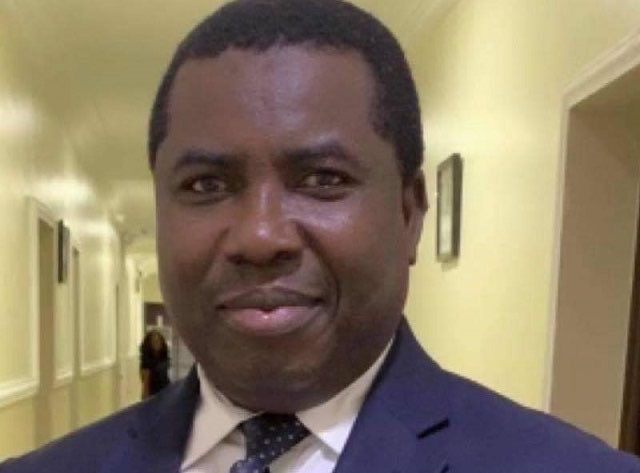The Senate President, Godswill Akpabio,on Saturday declared that the National Assembly will not be held hostage by the “disruptive instincts” of any of its members, saying that the assembly must uphold discipline and respect for its rules to preserve the sanctity of Nigeria’s democracy.
Although Akpabio did not name any particular lawmaker, his comments came amid renewed tension surrounding Senator Natasha Akpoti-Uduaghan (Kogi Central), who recently returned to the upper chamber after a six-month suspension that she continues to contest.
The Senate president, who made the declaration through n a statement issued by his media aide, Eseme Eyiboh, on Saturday, titled “The Trials and Triumphs of a Resilient Nigeria’s 10th Senate,” said the legislature’s insistence on enforcing its rules was not about silencing dissent but about preserving order and the sanctity of democratic institutions.
“The Senate cannot and will not be held hostage by the disruptive instincts of any of its members.
“Democracy thrives only when its institutions are respected and its rules upheld,” Akpabio said.
According to Akpabio, discipline in parliamentary conduct was the hallmark of every advanced democracy, noting that the Nigerian Senate shared the same principles with legislatures in countries such as the United Kingdom, Canada, and Australia.
“The discipline of parliamentary conduct is a universal marker of political civilisation.
“In the United Kingdom’s House of Commons, the authority of the Speaker is absolute and unchallenged. No member, regardless of party or popularity, may openly defy the Speaker’s ruling without consequences,” Akpabio said,
The Senate president added that Senate’s rules were not outdated or symbolic, but an essential part of governance designed to protect fairness, stability, and respect for leadership.
“The Nigerian Senate’s Standing Orders are not ceremonial relics from the past.
“They are the living constitution of the institution, carefully designed to preserve fairness, consistency, and the sanctity of the legislative process,” he noted.
Akpabio further defended the right of the legislature to discipline its members when necessary, drawing parallels with other democracies where lawmakers face suspension or expulsion for violating parliamentary order.
“In the world’s most respected parliaments, members who flout rules face swift consequences. In the British House of Commons, suspension or expulsion is not rare when a member’s behaviour undermines parliamentary dignity. Nigeria’s Senate has every right to apply similar standards,” he noted.
The Senate President described the 10th Senate as “a chamber of resilience and balance,” adding that its leadership was determined to demonstrate that “freedom within order is the truest form of democracy.”
“When the chamber asserts that it will not be held hostage by the disruptive instincts of any single member, it is affirming the primacy of collective responsibility over individual grandstanding.
“This is how strong legislatures endure — not by silencing dissent, but by ensuring that dissent respects the bounds of procedure,” Akpabio said, just as he also emphasised that his leadership approach was one of firmness and inclusion, saying the upper chamber must remain a stabilising force in the face of rising populism and public cynicism.
“Leadership of this sort does not seek applause; it seeks stability. By upholding its Standing Orders, the Senate has reclaimed its moral authority and demonstrated that rules, properly enforced, are not instruments of oppression but shields against institutional decay” Akpabio, a former Akwa Ibom governor, said.










